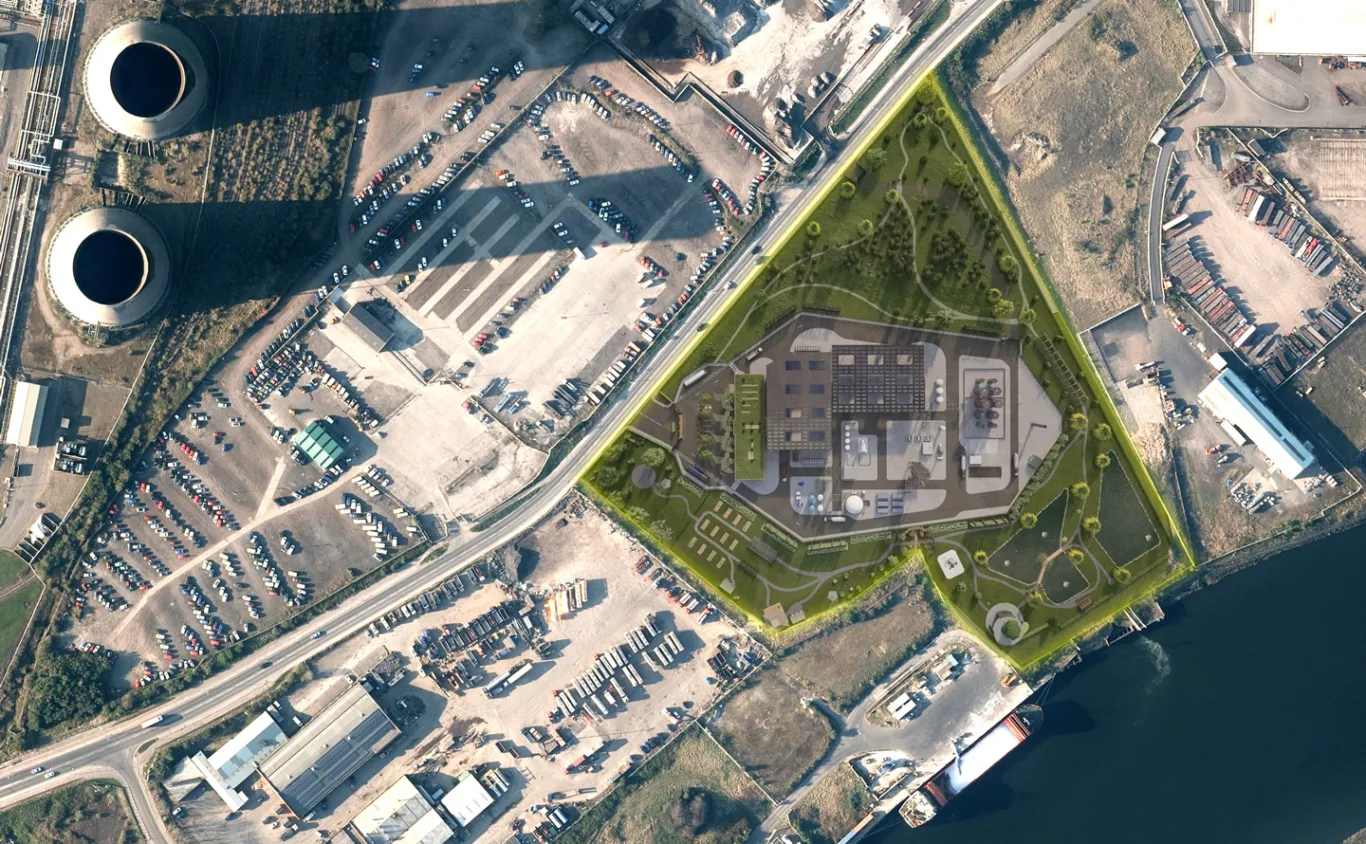We were already aware of our greenhouse gas savings, but Catalyst helped us translate that into a recognisable format for investors.
Katherine O’Neill, Development Manager, Clean Planet Energy

Plastic waste is global problem. Right now, of the 320 million tonnes of plastic produced each year worldwide, only 8% is recycled, while 63% is discarded as waste. Clean Planet Energy want to do something about that, which is why we are currently developing new technologies to process waste plastics at our ecoPlant facilities.
To achieve this goal, we have a far-reaching plan to build multiple ecoPlants in the UK. Understandably, our investors, some of whom are European, want to know that everything we do is environmentally responsible and aligns with EU regulations. It is, therefore, important for us to demonstrate compliance with EU Sustainable Regulations, ensuring that we are aligned with Article 9 of the Sustainable Finance Disclosure Regulation (SFDR).
Proving conformity means all our ecoPlants must be designed and built to meet stringent EU Taxonomy criteria for sustainable construction, including energy performance, air-tightness, thermal integrity and global warming potential. It’s a complex process, which is why we engaged Catalyst to provide their Climate Vulnerability and Risk Assessment and Minimum Safeguards services, to underpin our commitment to EU Taxonomy.
“Catalyst helps us to understand and comply with EU Taxonomy in a logical, manageable way.”
The process begins during the design phase. As such, in my role as Development Manager, I am responsible for identifying parcels of land that are suitable for our needs. From purchase and planning right through to ensuring land is shovel-ready, it is essential that we adhere to Article 9 as this can often be very site-specific.
When I took on the role, one of my first tasks was understanding the EU Taxonomy and what we needed to do to achieve conformity. I had a great deal of information to hand, but I wasn’t sure how to implement my findings. By engaging Catalyst, however, we were able to break down exactly how alignment could be achieved.
In the first instance, I supplied Catalyst with a summary of all our processes and set out how Clean Planet Energy aims to meet EU Taxonomy Red III, which establishes goals for the EU to increase the share of renewable energy in its total energy consumption to 42.5% by 2030.
During a thorough audit, Catalyst reviewed our efforts and clearly set out how we could achieve alignment – not just for our plastics processing technology but also for the construction of our infrastructure, ensuring the Clean Planet ecoPlants sit comfortably within an Article 9 fund.
“Detailed checklists specified everything required to achieve compliance.”
From governance and policies to biodiversity and environment, Catalyst broke the legislation down and set out a list of items we needed to satisfy. Their checklists were invaluable, highlighting each requirement and what we needed to provide.
When looking at the ecoPlant facilities, for example, Catalyst supplied a list of suitable building materials. They checked that our plastics processing technology complies with the wording of Article 9. Finally, they reviewed our greenhouse gas emissions and product lifecycle, ensuring all comparisons and calculations comply with EU Taxonomy.
“Complying with EU Taxonomy demonstrates our eco credentials, which is reassuring for investors.”
The end result is a series of detailed reports, written in a language that makes sense for our investors. This is hugely important for those looking to fund our company because there are significant tax breaks if investors can demonstrate they are making a green investment.
Obviously, we already knew we were creating greenhouse gas savings, but with EU Taxonomy, we can now prove that to our investors; Clean Planet is a legally environmentally sustainable business.
Today, our robust procedures demonstrate our environmental commitment to investors. Comprehensive climate vulnerability and risk assessments are part of this, along with the environmental safeguards built into our industrial processes and a commitment to sustainability in the ecoPlant facilities we construct.
“Being audited by an independent ESG consultancy illustrated that we don’t just claim to be eco-friendly; we have the stamp to prove it.”
Despite the fact that we had all the figures to hand, there is very little guidance on how to achieve EU Taxonomy and Catalyst helped us format our data in an internationally recognised ISO report and gave us clear direction on how to achieve compliance.
As a result, the data we provide is Article 9 compliant, highlighting that Clean Planet ecoPlants are contributing to EU environmental and sustainability objectives. Catalyst was instrumental in helping us prove that.
